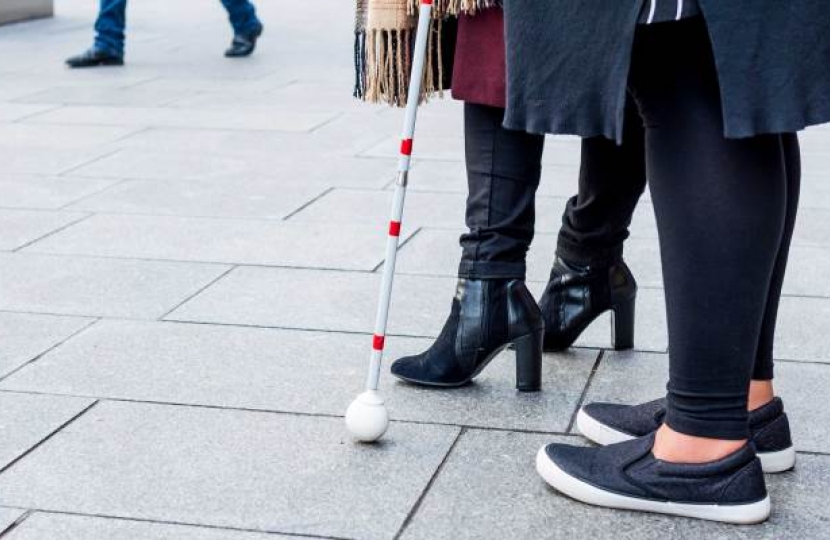
Every day, 250 people begin to lose their eyesight in our country, 2 million people are living with some form of sight loss and approximately 360,000 are registered as blind or partially sighted. The Royal National Institute of the Blind People (RNIB) help many of these people as one of the largest charities for blind and partially sighted people.
I had the pleasure of meeting with their local representative in Bourne a few months ago to learn more about their work on behalf of blind people in our area. It is a matter close to my heart as my grandmother used to work as a home economics teacher at a school for partially sighted children. I grew up hearing lots of stories not just about how difficult everyday tasks are for people with partial sightedness, but also how determined they were to do those tasks regardless of their challenges.
When the RNIB had me wear a blindfold and asked me to walk down North Street in Bourne, it was remarkable how completely vulnerable you feel and just how many obstacles stand in your way on the pavement. Whilst this is an easy stroll for most, our paths can be a minefield for those with disabilities.
RNIB research shows that people with sight loss collided with cars parked on pavements more than any other pavement obstruction. Drivers often park their cars on the pavement with the good intention of seeking to keep the road clear, but unfortunately this action has serious unintended consequences for others.
Often there is insufficient space for pedestrians to get past parked cars and they are forced to walk out into the road. This puts blind and partially sighted people at much greater risk from traffic. Those using wheelchairs or mobility scooters can also be badly affected with recent research showing that 48% were less willing to go out on their own because of pavement parking. Cars can also cause damage to pavements which increases costs for our local authorities and increases the risk of personal injury.
I am relieved therefore, that the government has launched a national consultation on pavement parking this week. They will consult with the public on ways to improve traffic regulations - whether that is making it easier for councils to prohibit pavement parking, or to give councils more powers to fine drivers who park on paths, or even to introduce a nationwide ban on pavement parking.
Whatever the outcome of the consultation, it is my hope that more people will see the problem parking on a pavement causes so that we can clear the way for the blind in our community.

